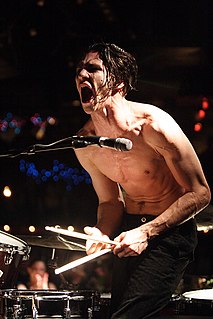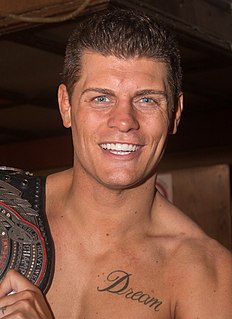A Quote by Charles J. Shields
My theory is that Kurt had a lot of residual pain from his childhood. And when you pile that on top of his experience in World War II - he was in Dresden when it was bombed and saw a city annihilated. When you combine those two things, my impression of Kurt Vonnegut at 84 was that he was a very pained and haunted man.
Related Quotes
I've read some of Kurt Vonnegut letters from when he was young. He was a prisoner of war, and even when he was in his early twenties, there were things mentioned that showed up in his novels. One of the sweetest things in those letters was him wanting to be a writer but doubting himself, not having confidence in himself.
To have a record crowd for What Culture, to be in there with Kurt Angle and not to be just, like, Kurt Angle plus garnish, for it instead to be Kurt Angle v. Cody Rhodes, our second match, actually - it was very vindicating. It's also nice, you know: the greatest revenge in all the world is success, so it's nice to be vindicated.





































